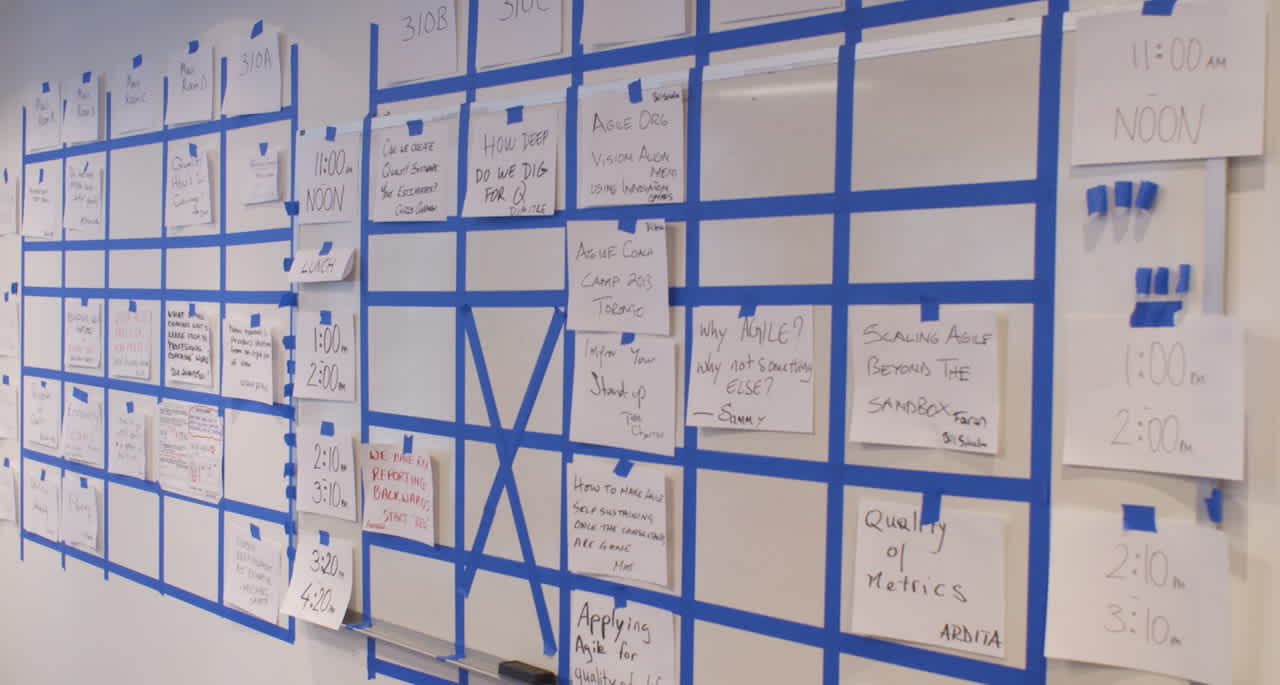When Chris Chapman, a friend and colleague, referred to an article on LinkedIn to explain his growing disinterest in Open Space conferences, I started writing a quick reply. The quick reply soon outgrew the limitations for a LinkedIn response and therefore ended up as this blog post.
First of all: I love Open Spaces, absolutely love them. Second, it’s a shame there’s not more real ones…
What’s the big deal?
I totally agree with Zach Bonaker’s assessment and have experienced the difference between water cooler conversations and well directed Open Spaces. The latter still provide me with a deep sense of fulfillment thanks to the presence of a compelling theme. The former mainly serve - though wonderful - as opportunities to reconnect with the community.
Like Chris, I don’t think there is anything wrong with the format, and for people relatively new to it, an Open Space is generally inspiring. However, when an Open Space becomes an easy way to organize a conference - I wonder if the term unconference helped spark that idea -, when a theme does not inspire or provides little guidance, the possibility for surprise quickly fades. When the facilitation of either the event or the individual sessions become about the facilitator and not about opening up the conversation, whatever happens is the only thing that was planned.
Providing focus
I have facilitated Open Spaces for communities. I have facilitated even more of them within the confines of a company, as a great tool to address specific challenges or chase well defined objectives. Deeply understanding the format and how it enables the space to be truly open is in my opinion a prerequisite. Last week I facilitated a workshop in the Agile Ottawa Meetup Group and stressed the need for a clear objective:
Why are we running a workshop in the first place?
Why should we invest time in this?
What are we trying to achieve?
The Open Space theme is supposed to communicate this objective, it is meant to bring the participants together around the focal point. When communicating the theme as part of the invite, people join because of it and whoever come are the right people. Participants generally - not always - propose sessions in line with the theme, opening up different perspectives, attacking the topic from different angles, which usually leads to surprising outcomes. When Open Spaces continue to provide value and bring surprise, participants are less inclined to hijack conversations with overly prepared content and whatever happens is driven by the participants’ passion.
Valuing the outcome
One thing I often find missing is a wrap up of some sorts to bring everything back together, leaving conversations in limbo. For company Open Spaces I explicitly aim to list up to 3 action points as the outcome of a session, which the conveners present as a summary. This typically brings all participants together and shows the tremendous opportunity of the format. Voting then identifies the top 3 actions the collective want to realize, connecting the whole experience with the theme, the participants, their passion and investment. The only other thing left to do is to find volunteer owners.
Action points are not always valuable for community Open Spaces, but some summary is. I found that posting a short paragraph per session online, possible enhanced with some pictures, shows value and provides opportunity for continued conversation.
It really all boils down to the following for me: know the objective of your Open Space and make sure everyone else does too. Let’s stop the decline of Open Spaces before we need to come up with a new name for it…

